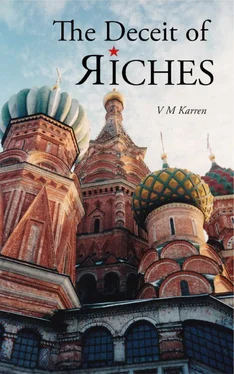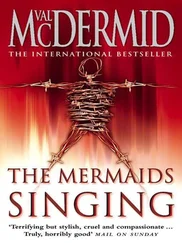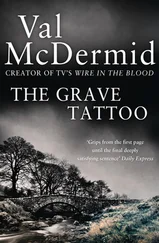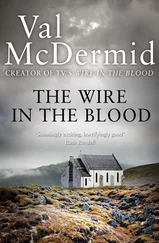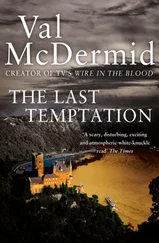The transit systems in Russia are systematically abused because one can board the bus without buying a ticket first, and without paying the fare if you get off quick enough. Many times, during very crowded bus rides one is requested to pass money forward to the driver’s cabin while the bus is moving in order that a ticket can be purchased for you and passed back. It happens often that passengers must get off the bus before their tickets are able to find them. On the night buses, from where the money comes, and to whom the tickets belong can sometimes remain a mystery.
Taking this babbling woman for a plain clothes transit controller, I quickly reached for my monthly bus pass along with my student card and flashed it confidently at her with a slightly defiant attitude. She apologized in a very humble voice and turned to grab a hand-rail as the bus lurched from the curb. She did not go on to ask anybody else for proof of payment. Her quiet apology was also very odd as most controllers usually just look and move on to the next passenger, who is usually hurrying to get out his money to look as if he is passing it forward to buy a ticket by proxy.
It became evident to me that I had misunderstood this woman and what it was that she was asking of me. Wanting to know what had just happened I leaned over to the white haired older woman sitting next to me and spoke in a low voice,
“Excuse me please, Babushka, I am a foreigner. Can you help me understand why the controller was so angry at me?”
“She’s not a controller. She just didn’t want to stand with her groceries She’s healthy enough. She can stand for five minutes,” the grandma smirked as she looked the other woman, in her mid-forties up and down with a dismissive eye.
I still looked puzzled and followed up, “Then why did she stop yelling at me when I showed her my bus pass and student card?” I held up my documents to show her what I had in my hand.
“She must have mistaken your student card as an invalid’s pass,” she assumed and dismissed my question.
This explanation puzzled me even more and I just couldn’t let it go. “Excuse Babushka, I look twice as healthy and strong as she does, why would she think I would be carrying an invalid’s pass?”
“Oh, young man, our boys from Nizhniy are now starting to come home from the fighting in Chechnya, some of them dead, God rest their souls, and many of them are badly wounded and have been given invalid papers and an army pension. She must have mistaken you for one our boys,” the grandmother said in a grave tone.
“Oh, well, I will give her my seat then!” I said determined to clear up the misunderstanding.
“No, No, you just sit here,” she took my hand and held it the rest of the ride until my stop,
”My youngest grandson has just been drafted into the army and he will soon go fight in Grozny. We said goodbye to him ten days ago and I fear that this was the last time that I will see him alive. My father died in Stalingrad. I understand that sacrifice against the Nazi fascists, we all did then, it was a matter of life and death for us, for Russia and our children and grandchildren. Nobody understands why we are sending our boys to fight our own people. Why should we fight each other? I can’t understand it. It will be the end of us when we send our own boys to kill the boys of our neighbors. Young, man, leave Russia before it’s too late! Don’t stay here. Nothing good will come of this.”
Between my afternoon discussion with Yuila and this encounter with a shriveled gray grandmother on the bus, I started thinking that perhaps it was better to leave Russia and go home while the going was still good. Once inside I collapsed on my bed a mess of emotions and worries. Bolshakov’s body in the blood-stained snow and Chechen soldiers filled my dreams that night.
Strelyenko, a junior professor, had only a cramped, poorly furnished room for an office that was eternally hazy with the cigarette smoke of an anxious and pensive chain smoking intellectual that he certainly embodied. The smell conveyed a sense of troubled thoughts. His ash trays seemed not to have been emptied since the last October. His desk was made of cheap pressboard as well as his bookshelves which were overflowing with books in many different languages. His desk top was not visible, covered in exercise booklets filled with students’ essays, his own notepads and hand scribbled thoughts and an ancient type writer. On the wall behind him hung a historic imperial Russian flag and by the door a framed photo of the late Tsar Nicholas II, the last of the Romanovs to sit on Russia’s throne. It seemed he wanted nothing to do with the modern era. I was startled to spy a telephone in the room. It seemed very out of place.
“Russia is indivisible and not even the Chechens should doubt that!” Strelyenko proclaimed at my questions about the Chechen rebellion and hope for an independent nation from Russia.
“Why shouldn’t Chechnya also ask for its independence just like Russia and Kazakstan did a few years ago, leaving the USSR?” I asked inquisitively.
The professor retorted, “Because, Russia and Ukraine and Byelorus were in fact different republics making a union. Constitutionally these were sovereign republics and could decide their own fate. Chechnya is not a sovereign province, not even an autonomous province like Tatarstan, you know, around Kazan. Chechnya is an inseparable part of the Russian Federation and has no constitutional prerogative to secede.”
“So the only way to do that then is by armed struggle,” I concluded.
“Which they will lose! They can’t take on the whole of the Russian army with a thousand guerrillas driving Ferraris and hope to win,” Strelyenko predicted with resentment in his voice. “Russia will never let itself be divided again and the world needs to understand that what was also once Russia will be reclaimed. It may take some time, but what the Soviet Union took from Russia will be restored, through armed conflict if necessary.”
“And how far back do you propose to go in history for your definition of greater Russia?” I asked alarmed.
“From 1917 of course, when our last rightful monarch was deposed, as we discussed already last week,” he stated with no hesitation.
“That’s a lot of territory to take back,” I said with a surprise on my face.
“Well, my friend, Rome wasn’t built in a day. Kiev won’t be regained in a year, but we will be patient and rebuild what was lost to the republicans and then to the communists,” he calmly assured me.
“And Poland then?” I feared his answer.
“That is an interesting question. One should answer that first by answering the question of whether or not Poland has a historical right to exist as an independent country. When did it really come into existence and how? To whom does Danzig belong?” The professor postulated.
“Danzig?” I queried unsure of the geography he was referencing.
“You would know it as Gdansk in Poland, but under the Prussian Keiser it was called Danzig,” he clarified.
“So, eighty years of existence since the end of the first world war for you isn’t historical enough?” the hair on the back of my neck began to stand up.
“Neither Stalin nor Hitler recognised this in 1939 after only thirty short years of its existence. Everybody could see that they couldn’t remain an independent nation and had to be taken into protection.”
“Protection?” I gasped, “You call that protection?”
“It’s all how you look at it, my American friend,” he said haughtily.
“Well, let’s agree to disagree then,” I proposed, “because what the Nazis and the Communists did in Poland cannot be called protection from my perspective.”
Читать дальше
